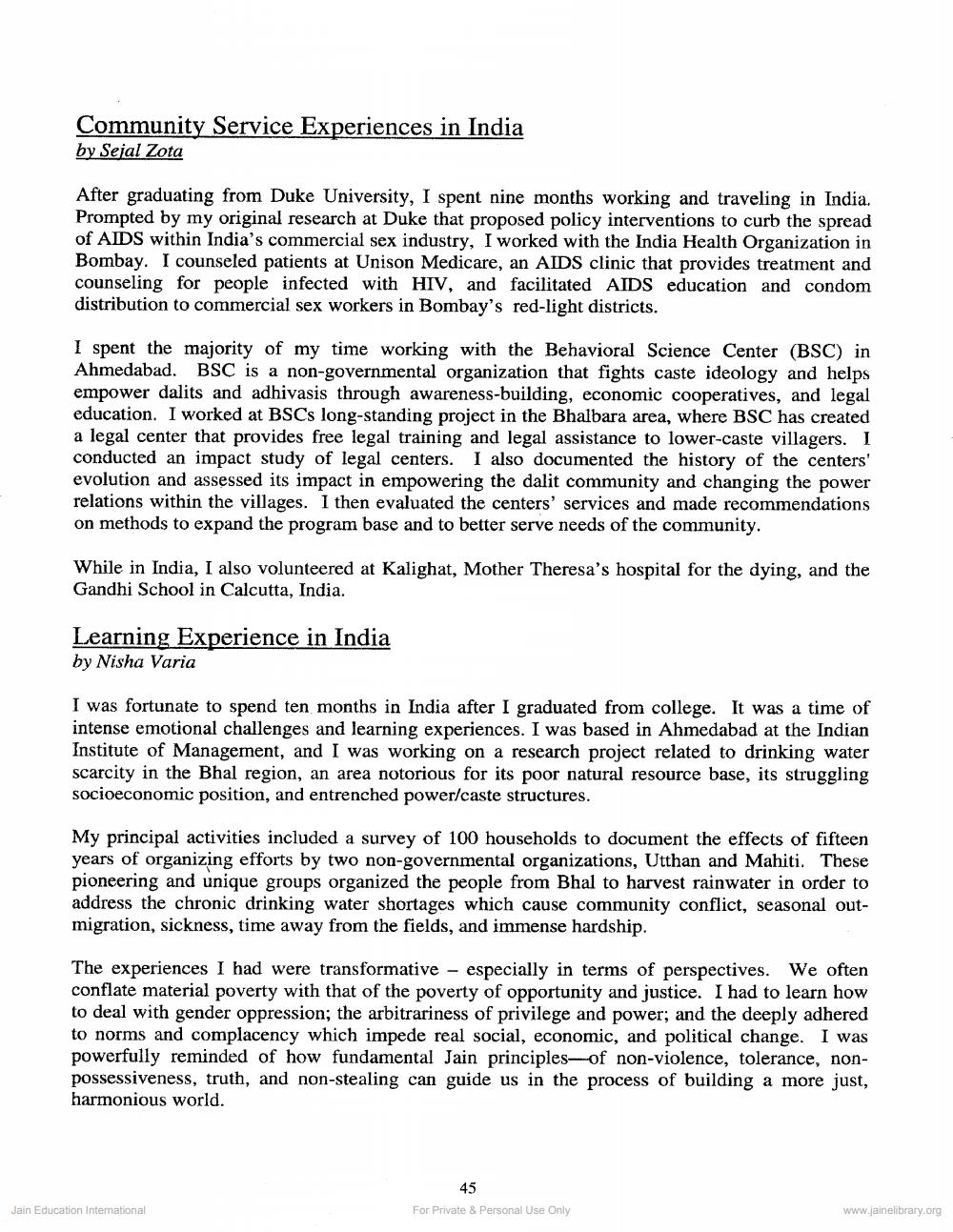________________
Community Service Experiences in India by Sejal Zota
After graduating from Duke University, I spent nine months working and traveling in India. Prompted by my original research at Duke that proposed policy interventions to curb the spread of AIDS within India's commercial sex industry, I worked with the India Health Organization in Bombay. I counseled patients at Unison Medicare, an AIDS clinic that provides treatment and counseling for people infected with HIV, and facilitated AIDS education and condom distribution to commercial sex workers in Bombay's red-light districts.
I spent the majority of my time working with the Behavioral Science Center (BSC) in Ahmedabad. BSC is a non-governmental organization that fights caste ideology and helps empower dalits and adhivasis through awareness-building, economic cooperatives, and legal education. I worked at BSCs long-standing project in the Bhalbara area, where BSC has created a legal center that provides free legal training and legal assistance to lower-caste villagers. I conducted an impact study of legal centers. I also documented the history of the centers' evolution and assessed its impact in empowering the dalit community and changing the power relations within the villages. I then evaluated the centers' services and made recommendations on methods to expand the program base and to better serve needs of the community.
While in India, I also volunteered at Kalighat, Mother Theresa's hospital for the dying, and the Gandhi School in Calcutta, India.
Learning Experience in India by Nisha Varia
I was fortunate to spend ten months in India after I graduated from college. It was a time of intense emotional challenges and learning experiences. I was based in Ahmedabad at the Indian Institute of Management, and I was working on a research project related to drinking water scarcity in the Bhal region, an area notorious for its poor natural resource base, its struggling socioeconomic position, and entrenched power/caste structures.
My principal activities included a survey of 100 households to document the effects of fifteen years of organizing efforts by two non-governmental organizations, Utthan and Mahiti. These pioneering and unique groups organized the people from Bhal to harvest rainwater in order to address the chronic drinking water shortages which cause community conflict, seasonal outmigration, sickness, time away from the fields, and immense hardship.
The experiences I had were transformative - especially in terms of perspectives. We often conflate material poverty with that of the poverty of opportunity and justice. I had to learn how to deal with gender oppression; the arbitrariness of privilege and power; and the deeply adhered to norms and complacency which impede real social, economic, and political change. I was powerfully reminded of how fundamental Jain principles of non-violence, tolerance, nonpossessiveness, truth, and non-stealing can guide us in the process of building a more just, harmonious world.
45 For Private & Personal Use Only
Jain Education International
www.jainelibrary.org




